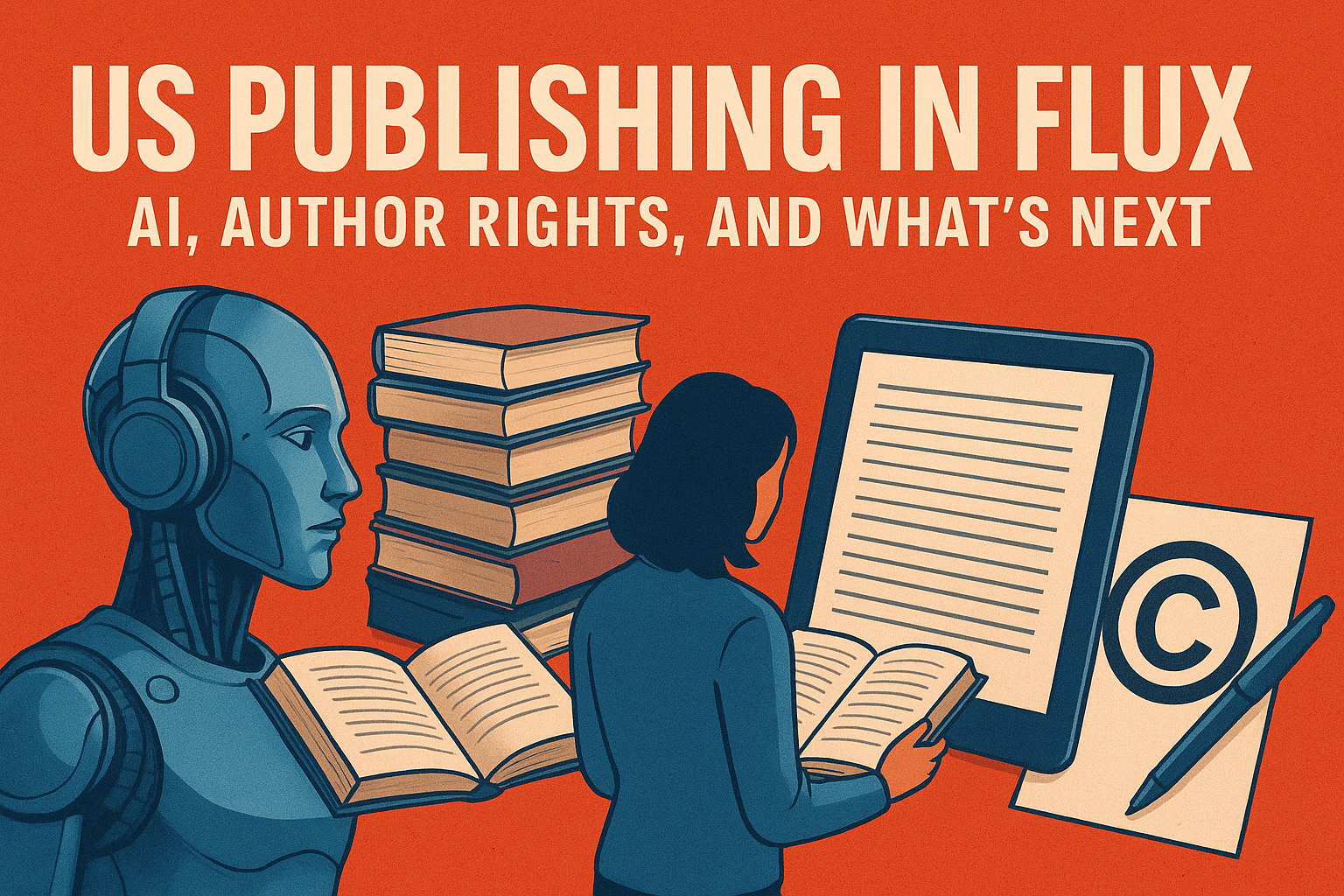Building an Author Website: What You Need to Know

An author website serves as the virtual storefront for writers in the digital age, providing a dynamic platform to showcase their literary endeavors, engage with readers, and cultivate their online presence. Much like a well-crafted novel, an author website weaves together various elements to captivate visitors and invite them into the author’s literary world.
At its core, an author website offers a comprehensive glimpse into the author’s identity and body of work. Through carefully curated pages, visitors are introduced to the author’s biography, highlighting their unique journey, passions, and accomplishments. This personal touch establishes a connection with readers, fostering a sense of intimacy and trust.
Central to any author website is the spotlight on their literary creations. Here, visitors can explore a gallery of published works, each presented with captivating cover art and enticing summaries. From bestselling novels to thought-provoking essays, the author’s repertoire is showcased in all its diversity, inviting readers to embark on literary adventures.
Beyond mere promotion, an author website serves as a hub of creativity and community. Through blog posts, readers gain insight into the author’s creative process, literary inspirations, and behind-the-scenes anecdotes. This interactive platform fosters a dialogue between author and audience, fostering a vibrant community of literary enthusiasts.
In essence, an author website is more than just a digital presence — it’s a virtual sanctuary where words come alive, stories unfold, and connections are forged. With each visit, readers are invited to delve deeper into the author’s world, forging meaningful connections that transcend the boundaries of time and space.
Key elements typically found on an author website include the following:
About the author. The “About the Author” section offers a brief yet compelling glimpse into the person behind the pen. Here, readers discover the author’s unique journey, passions, and inspirations, providing a personal connection that enriches the reading experience.
Books. The “Published Books” section provides a concise showcase of the author’s literary accomplishments. Here, readers can explore a curated selection of titles, each offering a tantalizing glimpse into the author’s creative universe.
Blog or news. The “Blog or News” section offers a dynamic feed of the author’s latest musings, updates, and insights. Dive into a treasure trove of articles, writing tips, and behind-the-scenes glimpses into the author’s creative journey.
Contact information. The “Contact Information” section provides essential details for connecting with the author. From inquiries to collaborations, reach out via email or a convenient contact form to engage directly with the creative mind behind the words.
Events. The “Events” section offers a glimpse into the author’s upcoming appearances and engagements. Stay informed about book signings, speaking engagements, and other exciting opportunities to connect with the author in person.
Social media links. The “Social Media Links” section provides quick access to the author’s online presence. Connect with the author on various platforms like Twitter, Facebook, and Instagram to stay updated on the latest news, interact with fellow readers, and engage in lively discussions.
Press kit. The “Press Kit” section offers comprehensive resources for media professionals and collaborators. Access high-resolution photos, author bios, book summaries, and press releases to facilitate coverage and promotion of the author’s work.
Mailing list signup. The “Mailing List Signup” section offers an exclusive gateway to stay updated on the author’s latest releases, news, and special offers. Join the mailing list to receive personalized updates directly in your inbox, ensuring you never miss a moment in the author’s literary journey.
Testimonials or reviews. The “Testimonials or Reviews” section provides a glimpse into readers’ experiences and feedback on the author’s work. Explore glowing testimonials and insightful reviews that attest to the impact and quality of the author’s writing, guiding prospective readers on their literary journey.
Media gallery. The “Media Gallery” section offers a captivating visual journey through the author’s world. Explore a collection of photos, videos, and audio clips related to the author’s books, events, and interviews, providing an immersive glimpse into their creative process and achievements.
FAQs. The “FAQs” section provides quick answers to common questions about the author and their work. Discover insights into the author’s writing process, upcoming projects, and more, offering valuable information for both new and seasoned readers alike.
***
An author website serves as a versatile tool for promoting an author’s brand, connecting with readers, and building a community around their work. It provides a professional online presence that can help attract new readers and opportunities in the literary world. Below are some of the terms that you must have great familiarity with:
Domain Registration
Domain registration marks the pivotal moment where a digital identity begins to take shape. It’s the process of securing a unique web address, or domain name, that serves as the online home for individuals, businesses, and organizations. Much like claiming a piece of virtual real estate, domain registration is the first step towards establishing a distinct and memorable presence on the internet.
In this digital age, a domain name acts as more than just an address; it’s a gateway to a vast online world where ideas are shared, businesses thrive, and communities connect. Whether it’s a personal blog, an e-commerce store, or a corporate website, choosing the right domain name sets the stage for building credibility, fostering trust, and reaching a global audience.
With countless possibilities and creative combinations available, domain registration offers individuals and businesses the opportunity to carve out their own unique corner of the internet. From selecting the perfect name to navigating the registration process, each step brings them one step closer to bringing their online vision to life.
In essence, domain registration represents the first chapter in a digital journey — one filled with endless potential, boundless opportunities, and the promise of making a lasting impact in the vast and ever-evolving landscape of cyberspace.
Optimization
Optimization is the process of refining and enhancing various aspects of a system or entity to improve its efficiency, performance, and effectiveness. In the context of digital technology, optimization often refers to fine-tuning websites, applications, algorithms, or processes to achieve specific objectives such as maximizing speed, increasing visibility, or enhancing user experience.
Whether it’s optimizing a website for search engines to improve its ranking and visibility, fine-tuning an algorithm to enhance its accuracy and efficiency, or streamlining a business process to minimize costs and maximize productivity, optimization plays a crucial role in driving success and achieving desired outcomes in today’s fast-paced and competitive digital landscape.
By carefully analyzing data, identifying areas for improvement, and implementing targeted strategies and adjustments, optimization empowers individuals and organizations to unlock hidden potential, capitalize on opportunities, and achieve peak performance in their endeavors.
Content Creation for Authors
Content creation for authors is the dynamic process of producing engaging and valuable material to connect with readers, promote books, and build a thriving online presence. From compelling blog posts and social media updates to captivating book descriptions and multimedia content, this multifaceted approach empowers authors to craft compelling narratives, showcase their creativity, and engage with their audience on a deeper level.
In today’s digital age, content creation serves as a powerful tool for authors to share their stories, insights, and expertise with the world. Whether it’s sharing behind-the-scenes glimpses into the writing process, offering writing tips and advice, or sharing personal anecdotes and experiences, authors can leverage various forms of content to establish themselves as thought leaders in their genre and connect with readers on a more personal level.
By embracing content creation, authors can amplify their voice, expand their reach, and forge meaningful connections with readers that transcend the pages of their books. Whether through written articles, podcasts, videos, or social media posts, content creation empowers authors to share their passion for storytelling and inspire readers to embark on literary journeys alongside them.
Author Branding and Marketing
Author branding and marketing” encapsulates the art of crafting a distinctive identity and effectively promoting it to captivate readers and expand audience reach. It’s a multifaceted approach that combines storytelling, visual design, strategic messaging, and promotional tactics to establish a memorable presence in the literary world.
In today’s competitive publishing landscape, authors must go beyond simply writing compelling stories — they must also cultivate a brand that resonates with their target audience and sets them apart from the crowd. This involves articulating their unique voice, values, and personality, and translating it into a cohesive brand identity that permeates every aspect of their online and offline presence.
From designing eye-catching book covers and author websites to engaging with readers on social media and participating in literary events, author branding and marketing encompasses a wide range of activities aimed at building awareness, fostering connections, and ultimately driving book sales.
At its core, author branding and marketing is about forging meaningful relationships with readers, earning their trust and loyalty, and inspiring them to become enthusiastic advocates for the author’s work. By consistently delivering value, authenticity, and creativity, authors can cultivate a strong brand that resonates with readers and stands the test of time in an ever-evolving publishing landscape.
***
Creating a professional website is essential for authors to showcase their work, connect with readers, and establish their online presence. Here’s a step-by-step guide to creating a professional website for authors:
Choose a domain name. Choosing a domain name is the process of selecting a unique and memorable web address that represents the author’s brand or identity online. It’s the first step towards establishing a professional and recognizable presence on the Internet.
Select a website platform. Selecting a website platform involves choosing a digital framework or software that will serve as the foundation for the author’s online presence. This decision determines the ease of website creation, customization options, and overall functionality. Popular platforms include WordPress, Wix, Squarespace, and Weebly, each offering varying levels of flexibility and user-friendliness to suit the author’s needs and technical proficiency.
Design your website. Designing your website involves the creative process of visually shaping and structuring the author’s online platform. This encompasses selecting themes, layouts, colors, fonts, and other visual elements that reflect the author’s brand identity and enhance user experience. The goal is to create an aesthetically pleasing and intuitive website that effectively showcases the author’s content and engages visitors.
Create essential pages. Creating essential pages entails crafting fundamental sections of the author’s website that provide key information and engage visitors effectively.
The essential pages (which are listed above) serve as the backbone of the author’s website, providing visitors with valuable information while guiding them through their exploration of the author’s work and identity.
Optimize for SEO. Optimizing for SEO involves strategically enhancing the author’s website to improve its visibility and ranking on search engine results pages (SERPs).By implementing effective SEO strategies, the author can increase organic traffic to their website, reach a wider audience, and attract more readers to their books and content.
Include high-quality content. Including high-quality content involves creating and presenting engaging, valuable, and relevant material throughout the author’s website. This content should captivate visitors, provide insight into the author’s writing style and expertise, and ultimately foster a meaningful connection with the audience. By prioritizing high-quality content, the author can establish credibility, build trust with readers, and create a compelling online presence that resonates with their target audience.
Make it mobile friendly. Making it mobile friendly involves ensuring that the author’s website is optimized for seamless viewing and interaction across various mobile devices, including smartphones and tablets. This optimization is crucial because an increasing number of users access the internet through mobile devices, and search engines prioritize mobile-friendly websites in their rankings. By making their website mobile-friendly, authors can provide a positive user experience for mobile users, increase engagement and conversions, and improve their search engine rankings.
Integrate social media. Integrating social media involves incorporating links, widgets, or feeds from the author’s social media profiles directly into their website. This seamless integration allows visitors to easily connect with the author on various social platforms, fostering engagement, expanding reach, and building a sense of community. By integrating social media into their website, authors can leverage the power of social networks to amplify their message, engage with their audience, and cultivate a loyal following across multiple platforms.
Add an email signup form. Adding an email signup form involves incorporating a form on the author’s website that allows visitors to subscribe to an email newsletter or mailing list. This form serves as a valuable tool for building and maintaining a direct line of communication with readers, enabling the author to share updates, exclusive content, promotions, and other relevant information. By adding an email signup form to their website, authors can effectively grow their audience, nurture relationships with readers, and drive engagement and sales for their books and other offerings.
Test and launch. Testing and launching involves thoroughly evaluating the author’s website for functionality, usability, and design before making it publicly accessible. This process ensures that the website meets quality standards and delivers a seamless user experience to visitors. By carefully testing and launching their website, authors can ensure that it delivers a positive user experience, effectively communicates their message, and achieves their goals for online presence and engagement.
Remember to regularly update your website with fresh content, news, and book releases to keep your audience engaged and coming back for more. A professional website is an essential tool for authors to promote their work and connect with readers in today’s digital age.
***
An author website stands as more than just a digital platform — it’s a vibrant hub where creativity meets connectivity, and where stories come to life in the virtual realm. By providing a captivating showcase of an author’s works, insights, and personality, it serves as a gateway for readers to embark on literary adventures, engage with their favorite authors, and become part of a thriving community of book enthusiasts.
With its seamless integration of essential features like book listings, blog updates, and contact information, an author website serves as a dynamic bridge between creators and their audience, fostering meaningful connections that transcend geographical boundaries and time zones. It’s a place where readers can delve into the depths of an author’s imagination, discover new worlds, and forge lasting bonds with fellow literary enthusiasts.
As the digital landscape continues to evolve, an author website remains an indispensable tool for writers to share their stories, build their brand, and cultivate a loyal following of readers who share their passion for storytelling. So, whether you’re a seasoned author or just starting on your writing journey, consider crafting your own digital haven — a place where your words can shine, your voice can be heard, and your stories can find their rightful place in the hearts and minds of readers around the world.




